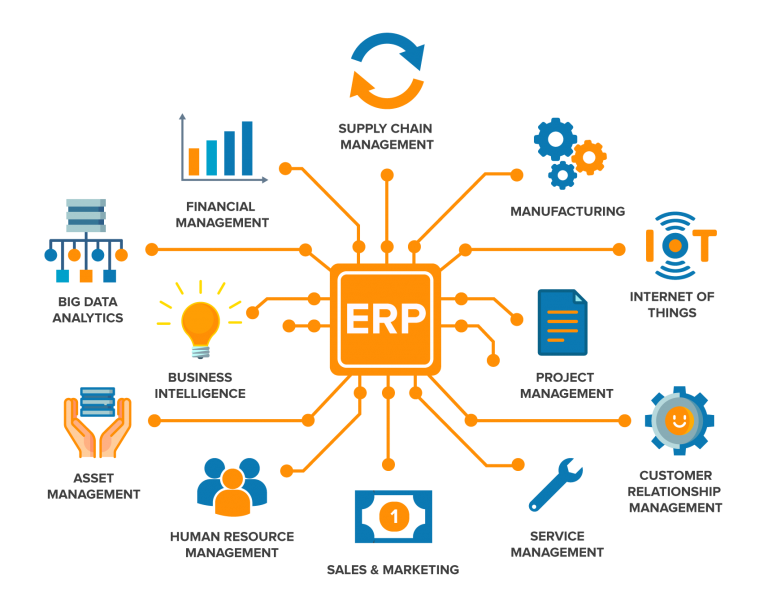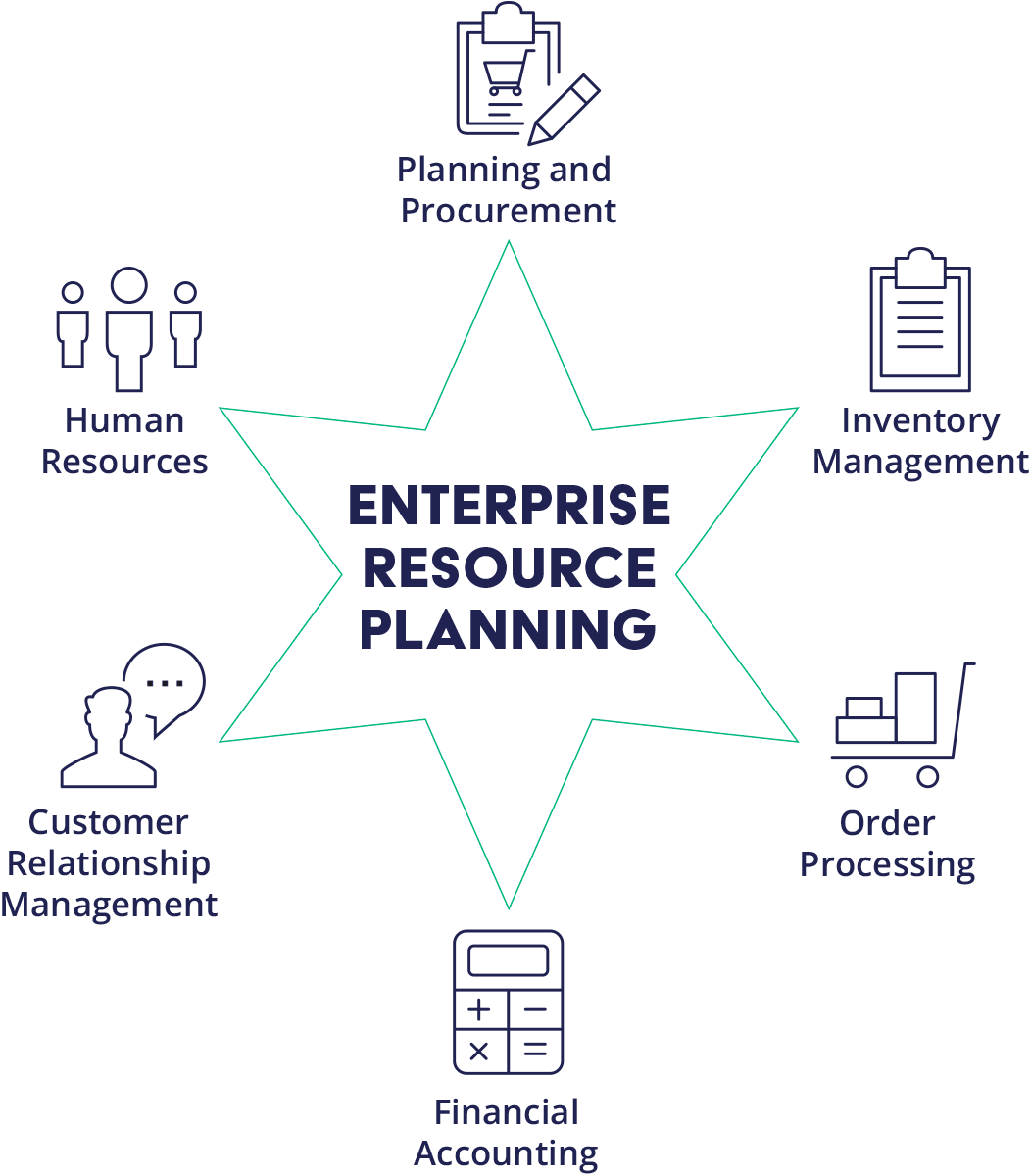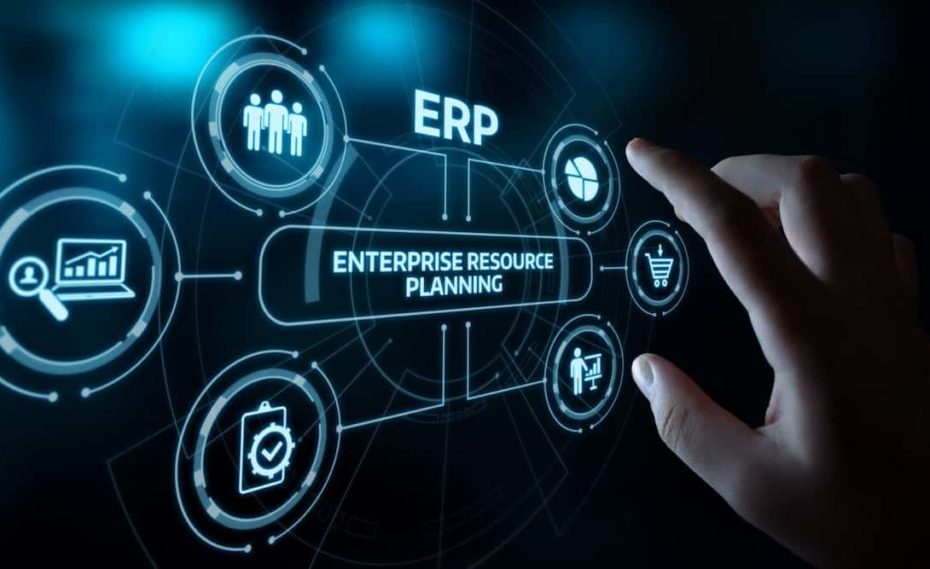ERP Software: A Comprehensive Guide|2025
Enterprise Resource Planning (ERP) software has become an indispensable tool for businesses seeking to streamline operations, enhance productivity, and achieve sustainable growth. This article explores the intricacies of ERP software, its benefits, top features, implementation challenges, and tips for selecting the right ERP system for your organization.
What is ERP Software?
ERP software integrates core business processes into a unified system, enabling seamless data sharing and decision-making across departments. By consolidating functions like finance, human resources, supply chain, and customer relationship management, ERP systems provide real-time insights and eliminate data silos.
Key Features of ERP Software
-
Centralized Data Management:
- Facilitates a single source of truth for all business data.
- Reduces redundancies and ensures data accuracy.
-
Process Automation:
- Automates routine tasks such as invoicing, payroll processing, and inventory tracking.
- Enhances operational efficiency and reduces human error.
-
Customizable Modules:
- Offers flexibility to add or remove modules based on organizational needs.
- Popular modules include finance, manufacturing, and human capital management.
-
Real-Time Analytics:
- Provides actionable insights through dashboards and reports.
- Supports data-driven decision-making.
-
Scalability:
- Adapts to the growing needs of businesses, whether startups or multinational corporations.
-
Integration Capabilities:
- Seamlessly integrates with existing software such as CRM and e-commerce platforms.
- Facilitates smooth data flow between systems.
Benefits of Implementing ERP Software
1. Enhanced Operational Efficiency:
ERP systems streamline workflows, minimize manual intervention, and optimize resource allocation, leading to increased productivity.
2. Improved Decision-Making:
Real-time data access enables managers to make informed decisions quickly, improving responsiveness to market changes.
3. Cost Savings:
By automating processes and reducing inefficiencies, ERP software helps businesses save on operational costs.
4. Regulatory Compliance:
Many ERP systems include tools to ensure adherence to industry standards and government regulations.
5. Customer Satisfaction:
With better inventory management and order processing, businesses can deliver faster and more accurate services to customers.
Popular ERP Software Solutions
-
SAP ERP:
- Known for its comprehensive functionality and scalability.
- Ideal for large enterprises.
-
Oracle NetSuite:
- A cloud-based ERP solution offering robust financial management features.
- Suitable for small and medium-sized businesses.
-
Microsoft Dynamics 365:
- Combines ERP and CRM capabilities.
- Integrates seamlessly with other Microsoft products.
-
Odoo:
- An open-source ERP solution that is highly customizable.
- Popular among small businesses.
-
Infor CloudSuite:
- Focuses on industry-specific solutions.
- Offers advanced analytics and artificial intelligence capabilities.
Challenges of ERP Implementation
-
High Initial Costs:
- Implementing an ERP system can be expensive, particularly for small businesses.
-
Complexity:
- ERP implementation requires careful planning and significant time investment.
-
Resistance to Change:
- Employees may resist adopting new systems due to fear of the unknown or additional workload.
-
Data Migration Issues:
- Transferring data from legacy systems to the new ERP system can be challenging.
-
Customization Constraints:
- Over-customizing the software can lead to increased costs and delayed implementation.
Steps to Successful ERP Implementation
1. Define Clear Objectives:
- Outline your business goals and expectations from the ERP system.
2. Select the Right Vendor:
- Research vendors based on your industry, company size, and specific requirements.
3. Involve Stakeholders:
- Engage employees, department heads, and IT teams to ensure smooth adoption.
4. Plan for Training:
- Provide comprehensive training to employees to familiarize them with the system.
5. Test the System:
- Conduct rigorous testing to identify and address potential issues before full deployment.
6. Monitor and Evaluate:
- Continuously monitor the system’s performance and gather feedback for improvement.
Future Trends in ERP Software
-
Cloud-Based ERP:
- Cloud ERP solutions are gaining popularity due to their scalability, lower costs, and remote access capabilities.
-
Artificial Intelligence and Machine Learning:
- AI-driven ERP systems can predict trends, automate decision-making, and enhance user experiences.
-
Mobile ERP:
- Mobile access to ERP systems allows employees to work efficiently from anywhere.
-
IoT Integration:
- IoT-enabled ERP systems provide real-time data from connected devices, improving supply chain management.
-
Enhanced Cybersecurity:
- As data breaches become more common, ERP vendors are focusing on advanced security measures.
Choosing the Right ERP Software
Factors to Consider:
- Business Needs: Assess the specific requirements of your organization.
- Budget: Consider both initial and ongoing costs.
- Ease of Use: Opt for software with an intuitive interface to minimize training time.
- Scalability: Ensure the system can grow with your business.
- Vendor Support: Choose a vendor with a reliable support system and regular updates.
Questions to Ask Vendors:
- What customization options are available?
- How does the software handle data security and compliance?
- Can the ERP system integrate with our existing software?
- What training and support services do you offer?
Conclusion
Enterprise Resource Planning (ERP) software is a transformative tool that empowers businesses to streamline operations, improve decision-making, and achieve sustainable growth. With numerous options available, selecting the right ERP system requires careful consideration of your organization’s needs, budget, and long-term goals. By addressing implementation challenges and staying updated on emerging trends, businesses can unlock the full potential of ERP software and maintain a competitive edge in today’s dynamic market.
For expert guidance on selecting and implementing ERP software, visit getspsshelp.com. Our team is here to help you navigate the complexities of ERP systems and achieve your organizational objectives.
Needs help with similar assignment?
We are available 24x7 to deliver the best services and assignment ready within 3-4 hours? Order a custom-written, plagiarism-free paper




